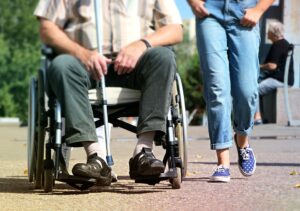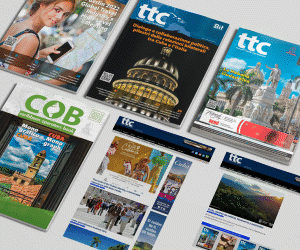TTC Special: Please, More Tourist Gates for Handicapped

By Frank Martin
International tourism has proposed in these years of intense health work, to promote care for disabled travelers in its services with adjustments and concrete advances in favor of this sector in air transport and accommodation, mainly.
In one of the countries with the highest number of tourists in the world, Canada, a recent meeting between federal government officials and the National Airline Council of Canada (NACC) estimated that, in this regard, much remains to be done.
In response to the Canadian and others international calls for the leisure industry throughout the world the issue is at the top of the agenda, including the Caribbean.
Some of the islands in the region apply numerous measures in the sector that are already daily to help tourists with physical problems to enjoy what they offer for their holidays.
“With a little research and some very well thought out decisions, travelers with disabilities can make their dreams of enjoying paradise a reality,” stressed a Caribbean specialist in the matter.
Transport firms by sea and air to the Caribbean have spaces in their ticket sales and accommodation for special treatment for disabled travelers.
General offers usually include proposals for those tourists with physical limits. That is why the promoters of Caribbean tourism propose that those interested analyze these advantages before to start vacations.
Some examples can be cited in this sense as competitive with other world destinations. For example, in Cuba, the Ministry of Tourism offers a safe, healthy, natural, sustainable destination.
It also seeks to make it increasingly accessible and inclusive to visitors, mainly for those with some type of disability, be it motor, visual or hearing.
In Aruba, a small and tourist-agile Caribbean Island, hotels and other offerings provide convenient facilities for people with physical disabilities.
The Reina Beatriz International Airport, for example, has fully equipped facilities and highly trained professionals to serve people with disabilities.
Cruise lines that travel to that part of the world offer real bargains for physically limited passengers which has been designing its ships with wheelchair-friendly cabins for decades.
Large ships have special cabins for passengers with disabilities as well as public access areas for disabled people. Hydraulic lifts are active to enter and leave the pool.
People considered as disabled are more than one billion worldwide. That number is 15 percent of the world’s population.
A reflection of the attention that the international tourism industry provides to these clients is seen more and more in hotels.
They are currently operating an increasing number of handicapped accessible rooms, with additional means of communication and active medical staff available. In the latter case, the expansion is due to the Covid-19 pandemic, but it is estimated that it is already an advance that is here to stay.
An increasingly frequent reminder from experts is that the label exhibited by certain hotels of being adapted for disabled clients should not prevent guests in these conditions from being aware that the measures are actually being followed.
“The market works through the à la carte service, according to the demands, desires and needs of customers, since there are people who, faced with a certain health situation, pregnancy or time limitation, also require greater accessibility”, underlined another recent analysis. in the world tourism press.

MORE NEWS










